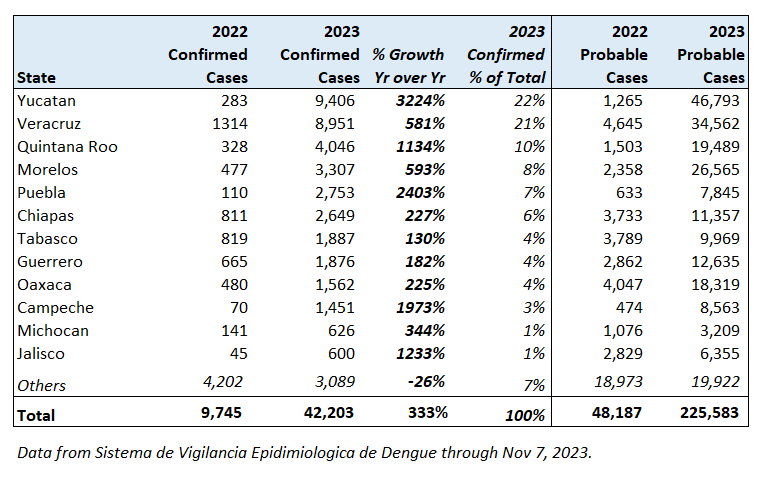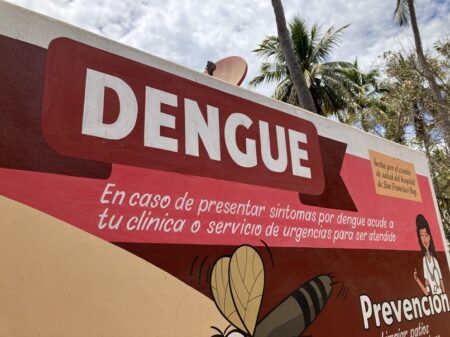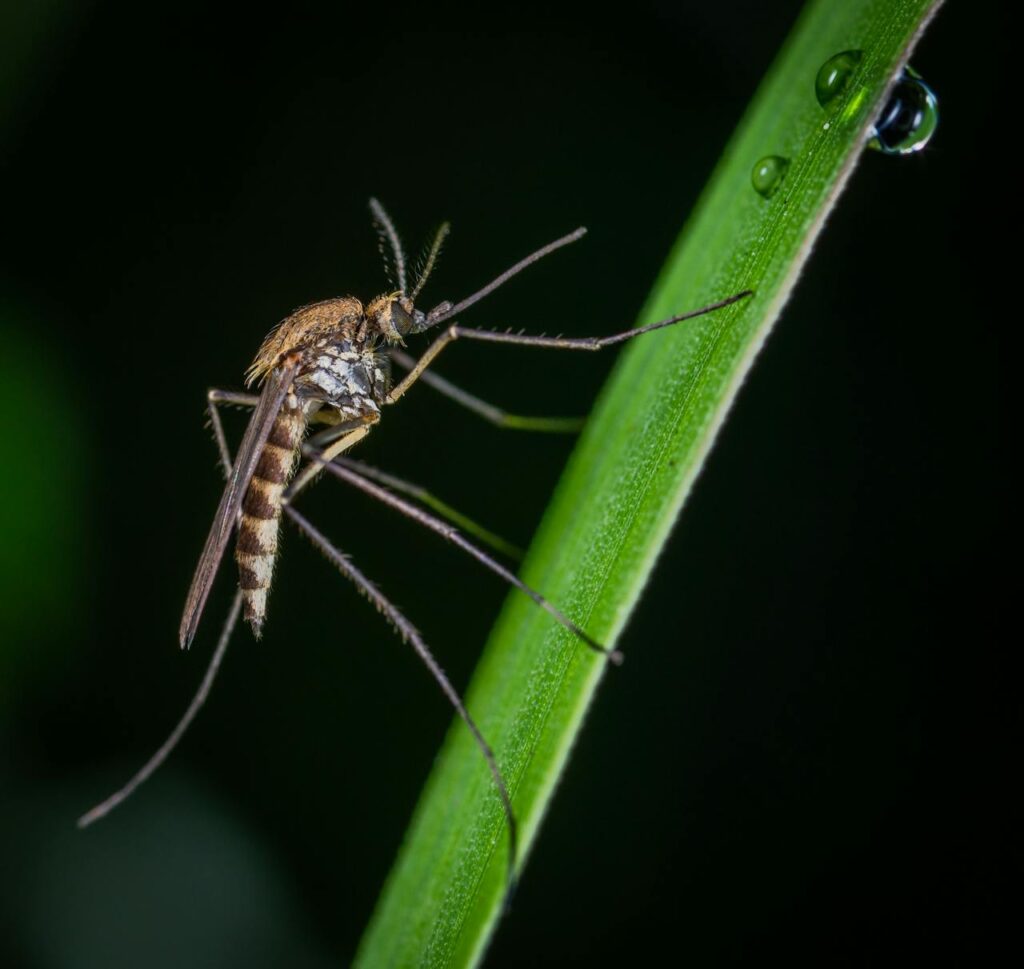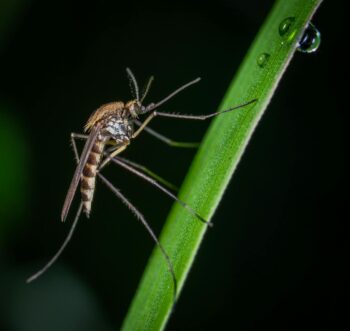At the risk of stating the obvious, one of the keys to living well in Mexico is staying healthy.
Living in a vibrant, major city like Guadalajara with so many modern conveniences, it’s easy to forget that there are deadly pathogens only a mosquito bite away.
Even in the age of Covid, most of us (myself included) still ignore some obvious risks while going about our daily lives. But it’s worth paying attention — because in 2023 — Mexico has seen an explosion in Dengue cases.
For those of you who are new to tropical climes, what’s Dengue you ask?
It’s a potentially deadly virus that’s spread through the bite of an infected mosquito of the Aedes species. There are actually 3,500 different species of mosquitos on this planet, but only three are known for carrying deadly pathogens you really need to worry about – Aedes, Culex and Anopheles.
As someone who devoured The Coming Plague by Laurie Garrett when it was published nearly 30 years ago, I confess to being fascinated by deadly viruses. After reading that fascinating (and scary) book, I’ve made a habit of consulting the CDC website prior to visiting a new foreign destination.
Now living as an expat in a country where Dengue is endemic, the risk is ever-present — and growing.
Mexico is seeing a record number of Dengue cases in 2023
Through last week, Mexico has had 42,203 confirmed cases of Dengue, up 333% from 2022 (the entire year). Probable cases across the country have now topped 225,000.
Unsurprisingly, the humid and tropical states of Yucatan, Veracruz and Quintana Roo along the Caribbean coast are seeing the highest caseload. These three states have accounted for more than half of all confirmed cases in 2023, with exponential growth compared to last year.
Reported Dengue Cases in Mexico in 2023 & 2022

Here in Jalisco, the total confirmed cases stand at 600, putting the state in 12th place. While far lower than other regions, the statistic I find most alarming is the growth rate. Dengue cases in Jalisco this year are trending at 13 times the 2022 level, with suspected cases ten times greater than the confirmed cases. Sheesh.
My assumption that most of these local cases probably occur in the countryside turned out to be dead wrong.
According to the National Epidemiological Surveillance System, 40% of Jalisco’s Dengue infections occur in the Guadalajara metro area consisting of Zapopan, Guadalajara, Tlaquepaque, Tonalá and Tlajomulco.

Perhaps an urban area is simply better at detecting and reporting the cases. Perhaps not.
While roughly 25%-30% of all Dengue cases are considered serious, the death rate for this virus fortunately remains very low at about 0.4%.
What are the main symptoms of Dengue?
An estimated 400 million people worldwide become infected with Dengue each year through mosquito bites.
Many people infected with Dengue exhibit no symptoms. But for those who aren’t so lucky, the most common symptoms are a very high fever, intense pain in the joints, muscles and bones, abdominal discomfort, nausea or vomiting, severe headache, body rashes, and fatigue.

A small minority of Dengue patients will experience bleeding from the nose and gums, which indicates Dengue hemorrhagic fever — the most serious variety.
Dengue’s incubation period lasts from a few days up to one week, with severe symptoms typically lasting a few days. Most people will recover in 1-2 weeks.
If suffering from any of these symptoms it’s advisable to seek medical help immediately. In addition, the following foods should be avoided if infected with Dengue — spicy, salty, fried or fatty foods, as well as caffeine and alcohol. Lean protein such as fish, tofu, eggs and chicken can help the body to recover, along with plenty of rest.
How to protect yourself
There’s currently NO VACCINE for adults to protect against Dengue and no medicine to treat it once infected.
At the moment, only children aged 9-16 years living in areas where Dengue is endemic, with lab-confirmed cases are approved to receive a vaccine. Travelers to endemic regions are not eligible.
According to the U.S. Centers for Disease Control (CDC), the number one thing you can do to protect yourself is to avoid mosquito bites.
This means taking the following precautions to reduce the risk of getting bitten:
- Using bug repellent with one of these active ingredients: DEET, Picaridin (or Icaridin), Oil of lemon eucalyptus, IR3535, Para-methane-diol, or 2-undecanone.
- Covering your skin with long-sleeved shirts and long pants, especially at dusk and after dark.
- Eliminating mosquitos inside and outside your home.
- Using screens on your windows and doors.
- Eliminating standing water outside your home (check planters, birdbaths, pools, trash containers, tires because mosquitos lay eggs near water).
- Sleeping with a bed net to protect yourself at night (especially in high risk areas).
Conclusion
The risk of being infected with Dengue, and to a far lesser extent Malaria and Zika, is on the rise in Mexico.
Since climate change is a key driver of the growing risk (even the southern U.S. has confirmed cases of Dengue and Malaria acquired locally in 2023), it’s worth factoring into your planning if you’re still in the process of choosing a retirement destination in Mexico.
The drier, central and western states at high elevations have a significantly lower infection rates, with Mexico City, Zacatecas and Tlacala having zero cases so far this year.
Sources: CDC, Secretaría de Salud, El Mural, Informador, Narayana Health

